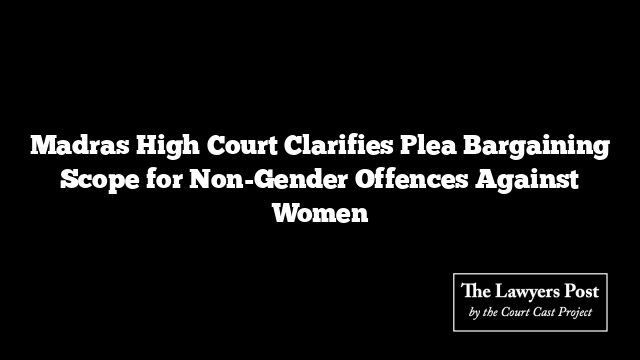In a significant ruling, the Madras High Court has clarified that the bar on plea bargaining for offences against women, as outlined in the Bharatiya Nyaya Sanhita, is limited to gender-centric crimes such as sexual assault, harassment, or marriage-related offences. Non-gender offences committed against women, however, are eligible for plea bargaining.
Justice G Jayachandran, in an order dated August 7, emphasized that the term “offences against women” under Section 189 of the Bharatiya Nyaya Sanhita should be interpreted to include only those crimes rooted in gender discrimination. General offences, even if committed against a woman, do not fall under this category and can thus be considered for plea bargaining.
The ruling came as part of a case where G Venkateshan had challenged a trial court’s refusal to entertain his plea bargaining application. Venkateshan had previously sought the quashing of an FIR against him for obstructing a woman bailiff. The High Court had initially directed him to seek plea bargaining after he expressed regret. However, the trial court dismissed his application on the grounds that the alleged offence was against a woman.
Justice Jayachandran overruled this, noting that the offence was “non-gender in nature” and thus eligible for plea bargaining under the relevant legal provisions. He also issued guidelines for trial courts to inform the accused about their right to plea bargaining immediately after charges are framed, ensuring that this right is exercised within the prescribed 30-day period. Additionally, he urged trial courts to collaborate with legal services authorities to facilitate voluntary plea bargaining, ultimately saving judicial time.
The ruling offers a nuanced interpretation of the law, differentiating between gender-centric and non-gender offences, and providing clarity on the application of plea bargaining in cases involving women.





